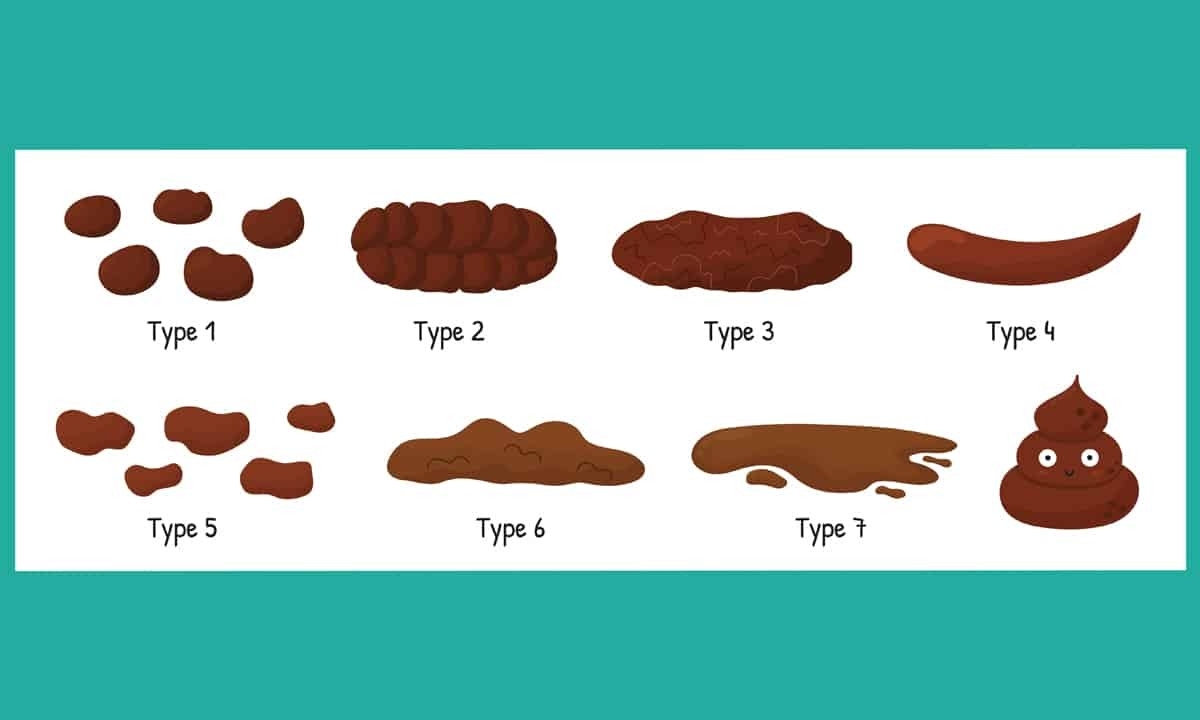Exploring The Fascinating World Of The Poop Museum Massachusetts
Have you ever stopped to think about something as everyday as poop? It might seem like an odd question, yet this often-overlooked bodily function holds a surprising amount of information about our health. The very idea of a museum dedicated to this topic, especially a poop museum massachusetts, might raise an eyebrow, but it also sparks a deep curiosity, doesn't it? This unique kind of place, hypothetically nestled in Massachusetts, aims to pull back the curtain on a subject that's usually kept quiet, making it accessible and educational for everyone who steps inside, so it's almost like a revelation.
For many, discussing bowel movements feels a bit, well, private. However, understanding what your poop is telling you can be incredibly powerful. A museum focused on this, perhaps a poop museum massachusetts, would transform a private matter into a public learning experience. It would, in a way, invite visitors to explore the intricate workings of their own bodies, offering insights into digestive health that are often missed in daily life. This is that, is that, a place where curiosity meets crucial health knowledge.
Imagine a place where you can learn about the different types of poop, its various consistencies, and even its smells, all in a very engaging way. A poop museum massachusetts would, in some respects, be a groundbreaking institution, making complex biological processes easy to grasp. It could help us all become more attuned to our bodies' signals, turning something we might find a bit gross into a tool for better well-being, which is pretty neat.
- Oliver Dachsel Greenwich Ct
- Ben Anderson Phoenix
- Cancer Man And Taurus Woman Love Match
- Who Did Jensen Ackles Marry
- Eva Mendes Style
Table of Contents
- What is the Poop Museum Massachusetts?
- The Educational Journey Inside
- Interactive Exhibits and Visitor Experience
- Why Talk About Poop? The Importance of Openness
- Frequently Asked Questions About the Poop Museum Massachusetts
- Conclusion: A Unique Learning Adventure
What is the Poop Museum Massachusetts?
A poop museum massachusetts would, for all intents and purposes, be a one-of-a-kind institution, dedicated to the science and significance of human waste. It's a place designed to demystify bowel movements, transforming what's often a source of embarrassment into an educational opportunity. This concept, frankly, taps into a growing public interest in health and wellness, particularly gut health, which is very much a topic of conversation these days. Such a museum would serve as a hub for learning about digestive processes, the meaning behind different stool characteristics, and how our diet and lifestyle truly affect our internal workings, you know?
Think of it as a place where you can explore exhibits that explain the journey food takes through your body, from bite to exit. It would highlight how the large intestine, for example, helps to concentrate waste by absorbing water, a rather crucial step in the process. The museum, quite simply, aims to equip visitors with the knowledge to better understand their own bodies and recognize signals that could point to underlying health issues. It's a rather practical approach to health education.
The vision for a poop museum massachusetts isn't just about the gross-out factor; it's genuinely about public health. By presenting information in an engaging and accessible way, it seeks to normalize conversations about bodily functions that are, in fact, vital indicators of our overall well-being. It's an opportunity to learn, to question, and to gain a deeper appreciation for the complex systems that keep us going every single day, which is something we often take for granted, isn't it?
- Names For Little Brothers
- Luke Bryan Tee Shirts
- Bob Guiney Age
- Titanium Nano
- Queens 4 Legends 1 Stage Tour
The Educational Journey Inside
Stepping into a poop museum massachusetts would mean embarking on an educational journey that covers nearly every aspect of human digestion and elimination. The exhibits would be carefully curated to provide comprehensive insights, from the basic mechanics of how we process food to the subtle clues our waste provides about our internal state. It's an experience that would, in a way, change how you view your next bathroom trip.
You'd discover that different types of poop, with their range of consistencies and odors, aren't just random. They're actually messages. This museum would help you learn more about these differences and the causes of poop abnormalities, giving you tools to interpret what your body is trying to tell you. It's a rather empowering feeling, knowing you can pick up on these signals.
The details of your poop, you see, can provide very important clues to your state of health. A visit to a poop museum massachusetts would, for instance, teach you what the sight, smell, size, color, and shape of your poop can tell you. It's a surprisingly rich source of information, truly, about your health.
Unraveling the Bristol Stool Scale
One of the central features of a poop museum massachusetts would, without a doubt, be an in-depth exploration of the Bristol Stool Scale. This chart, frequently used by gastroenterologists, identifies seven types of stools based on shape and consistency. It's a really simple yet powerful tool for communication, you know, especially when talking to a doctor.
At the museum, you'd learn what the Bristol Stool Scale is and why it's so important. You'd see visual representations of each type, from type 1, which is the hardest, to type 7, which is the softest. This visual aid would make it much easier to describe your bowel movements to your doctor without needing to bring in a sample, which is a bit of a relief for most people, I imagine.
Understanding this scale means you can better communicate any changes you notice. For example, poop that is hard and shaped like tiny rocks or pebbles is likely just a sign of constipation, a common issue. You can still be considered constipated, interestingly enough, even if you are able to pass a small amount of stool. The museum would really help clarify these points, making them very clear.
Colors and Clues: What Your Poop Reveals
The color of your poop, it turns out, can indicate your health state by giving some clues about your diet and lifestyle, or perhaps even the presence of a gastrointestinal infection. A poop museum massachusetts would likely have an entire section dedicated to this fascinating aspect, showing various colors and explaining their potential meanings. It's a rather colorful topic, literally.
You'd learn, for instance, how bile travels through your digestive tract and how it is chemically altered by enzymes, changing the colors from green to brown. This process, apparently, is a key part of how your body works. Knowing this helps you understand why your poop looks the way it does on any given day.
But what if you have white stool? This is a very important signal. The museum would emphasize that if you have white stool, you should see a medical professional right away. That may mean a serious underlying problem, because bile, a digestive fluid produced by the liver and stored in the gallbladder, isn't making its way into your digestive system as it should. It's a crucial piece of information, really, that could save a life.
The museum would also touch upon infant stool, which can have various colors and textures. Parents could learn what to expect in their newborn's diapers, helping to ease worries and provide practical guidance. It's a comprehensive look at poop, from infancy through adulthood, which is quite thorough.
Diet, Digestion, and Daily Habits
Your poop, it's true, can tell you if you’re eating enough fiber and drinking enough water, or if your digestive system is processing food too slowly or too quickly. A poop museum massachusetts would definitely explore these connections, showing how what you put into your body directly influences what comes out. It's a very direct feedback loop, if you think about it.
Exhibits might delve into common digestive issues. For example, you might learn about undigested food in stool, which generally isn't a problem unless it's accompanied by other symptoms. The museum would help you understand when something is normal and when it might be a cause for concern. It's about empowering you with knowledge, basically.
Then there's dumping syndrome, a condition where food, especially food high in sugar, moves from your stomach into your small bowel too quickly after you eat. Sometimes called rapid gastric emptying, this often occurs as a result of surgery on your stomach or esophagus. Most people with dumping syndrome develop signs and symptoms, and a museum exhibit could explain these in detail, which is rather helpful for those affected.
The topic of mucus in stool would also be covered. A small amount of mucus in stool is usually nothing to worry about; stool often contains a small amount of mucus. Mucus is a jellylike substance that your intestines make to keep the lining of your colon moist and lubricated. The museum would help distinguish between normal amounts and when it might signal something more. It's all about context, really.
When to Pay Attention to Changes
Lasting changes in your bowel habits or the appearance of your poop can be a sign of a medical condition that requires treatment. The poop museum massachusetts would underscore this very important point, urging visitors to know when to seek help. It's not about alarming people, but about educating them to be proactive about their health.
Common causes of fecal incontinence, for instance, include diarrhea, constipation, and muscle or nerve damage. Fecal incontinence can affect a person's ability to work, socialize, or do typical daily activities. It often causes embarrassment or emotional stress, and the museum would address this sensitive topic with compassion and clear information, which is something people really appreciate.
Many things can trigger frequent bowel movements. The museum would help you find out what may be causing your extra bathroom trips and when it's time to call a healthcare professional. Sometimes, it's the only symptom of a condition. At other times, it may be associated with other symptoms, such as nausea, vomiting, abdominal pain, or weight loss. Understanding these connections is very important.
The museum might even touch upon rarer conditions, like an open tunnel connecting the rectum and vagina, allowing gas or stool to pass into the vagina. This kind of information, while perhaps a bit uncomfortable to discuss, is crucial for those who might be experiencing such issues, offering them a place to learn and understand. It's about providing a comprehensive picture of digestive health, you know?
Interactive Exhibits and Visitor Experience
Imagine walking through a giant model of the digestive tract, seeing firsthand how food breaks down and nutrients are absorbed. A poop museum massachusetts would likely feature highly interactive exhibits to make learning about such a topic both memorable and fun. This approach helps to make complex biological processes much more accessible and engaging for people of all ages, which is pretty clever.
There could be digital displays where you can "design" your ideal healthy poop based on diet choices, or perhaps a game that simulates the journey of food through the intestines. Such hands-on experiences help solidify the information presented, making it stick in your mind long after your visit. It's a very effective way to teach, actually.
The atmosphere would be welcoming and educational, aiming to break down any squeamishness surrounding the topic. It's about creating a space where curiosity is encouraged and questions are answered openly, without judgment. This kind of environment fosters a healthier attitude towards our bodies and their natural functions, which is really beneficial for everyone, I think.
A gift shop, naturally, might offer quirky, educational items related to gut health, or even fun, science-themed toys for kids. It's all part of the experience, reinforcing the idea that learning about our bodies can be enjoyable. The overall goal is to leave visitors feeling more informed, more comfortable discussing their health, and maybe even a little bit amazed by the wonders of their own digestive system, you know?
Why Talk About Poop? The Importance of Openness
For too long, conversations about poop have been, well, taboo. This silence means many people miss out on vital health clues their bodies are constantly providing. A poop museum massachusetts would actively work to dismantle this stigma, encouraging open and honest discussions about bowel health. It's about realizing that this is a perfectly natural and important part of being human, really.
After all, how often you poop, what your poop looks like, and how long it takes you to poop can tell you a lot about your gut health, according to experts. When we avoid talking about it, we miss opportunities to catch potential issues early. This museum would serve as a powerful reminder that ignoring these signals can have serious consequences, which is something we should all be aware of.
By making the topic approachable and even a little bit humorous, a museum like this can empower individuals to take a more active role in their own health. It encourages people to observe their bodies, to ask questions, and to seek help when something seems off. This kind of proactive approach to wellness is very much needed in our society today, I think.
Ultimately, the existence of a poop museum massachusetts would signal a shift towards greater openness and health literacy. It's a bold step, perhaps, but one that could lead to healthier individuals and communities by making essential knowledge accessible to all. It's about breaking down barriers and building a better understanding of ourselves, you know, from the inside out.
Frequently Asked Questions About the Poop Museum Massachusetts
Here are some common questions people might have about a museum dedicated to such a unique topic:
Is the Poop Museum Massachusetts a real place?
While the concept of a poop museum massachusetts is certainly intriguing and educational, as of today, there isn't a specific, dedicated "poop museum" in Massachusetts. The idea serves as a fantastic way to discuss digestive health and the importance of understanding our bodily functions in an engaging format, you know? It's a hypothetical place for a very real and important discussion.
What kinds of things would you learn at a poop museum?
At a poop museum massachusetts, you'd learn a great deal about your digestive system and what your bowel movements can tell you about your health. This includes understanding the Bristol Stool Scale, what different poop colors and textures mean, the role of diet and hydration, and when changes in your stool might signal a medical condition. It's a comprehensive look at gut health, basically.
Why is it important to know about poop?
Knowing about poop is actually very important because it offers crucial clues about your overall health. Your bowel movements can indicate if you're eating enough fiber, drinking enough water, or if your digestive system is working correctly. Lasting changes in your poop can also be a sign of a medical condition that needs attention. It's a vital feedback system from your body, really, that we should pay attention to.
Conclusion: A Unique Learning Adventure
The concept of a poop museum massachusetts, while perhaps unconventional, truly highlights the growing interest in personal health and the importance of understanding our bodies. It represents a playful yet serious approach to demystifying a topic that's often kept in the shadows, making vital health information accessible and engaging for everyone. This kind of museum would, in a way, invite us all to embrace a more open conversation about our digestive well-being, which is something we could all benefit from, you know?
By exploring the nuances of our bowel movements, from consistency to color, we gain a powerful tool for self-awareness and proactive health management. It’s about recognizing that our poop offers clues about our health, and learning to interpret those signals can make a real difference. This unique learning adventure encourages us to pay closer attention to our bodies, fostering a deeper connection with our internal health, and that's a pretty valuable thing.
So, next time you consider the less glamorous aspects of human biology, perhaps ponder the wealth of information contained within. A visit to a place like a poop museum massachusetts would certainly change your perspective, transforming a mundane bodily function into a fascinating subject of study and self-discovery. It's a rather profound shift in thinking, really, and one that could lead to a healthier you. To learn more about digestive health, consider resources from a reputable health organization, for instance, the National Institute of Diabetes and Digestive and Kidney Diseases.
- Keita Kurakami Climber
- Pluto Sun Conjunction
- Large Plastic Planter Liners
- Witchrot Breakup
- Yellowstone Living Room

Cary Gastroenterology Associates | The Bristol Stool Chart: What Type…

628 Poop real Images, Stock Photos & Vectors | Shutterstock

Poop, Environment, Toilet, Waste, Hygiene PNG